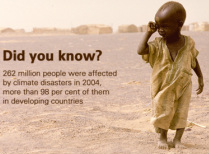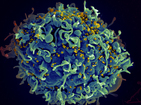

Regardless of our political affiliations and ideologies, it is only fair to claim that the President is right. Innovation must be fostered. Innovators are highly creative people with a gritty personality that allows them to thrive in an uncertain and skeptical environment. Innovation, while initiated due to curiosity, and guided by necessities and bottom-lines, is an organic process. One cannot force innovation. One cannot control innovation. Innovation has and will continue to endure every test of time.

These are modern engineers in the making; they communicate via 140 character tweets, SMS, and Facebook. They like to experience things and get their feet wet, be it a laboratory experiment or a software project. They don't like waiting, and why should they wait? After all, they were thrust into the era of instant knowledge creation, curation, and sharing -- the era of holding an iPhone in their hand that allows them to "Google" about Einstein and "tweet" the search results. And who is responsible for this era? Us.
How is it that we expect our engineering students to address climate change and take an active role in eradicating -- not battling -- but eradicating once and for all, diseases like Cancer and HIV if the only thing we subject them to is sections of a textbook, mundane weekly homework assignments, and final exams?

Why not engineer engineering education?
 RSS Feed
RSS Feed